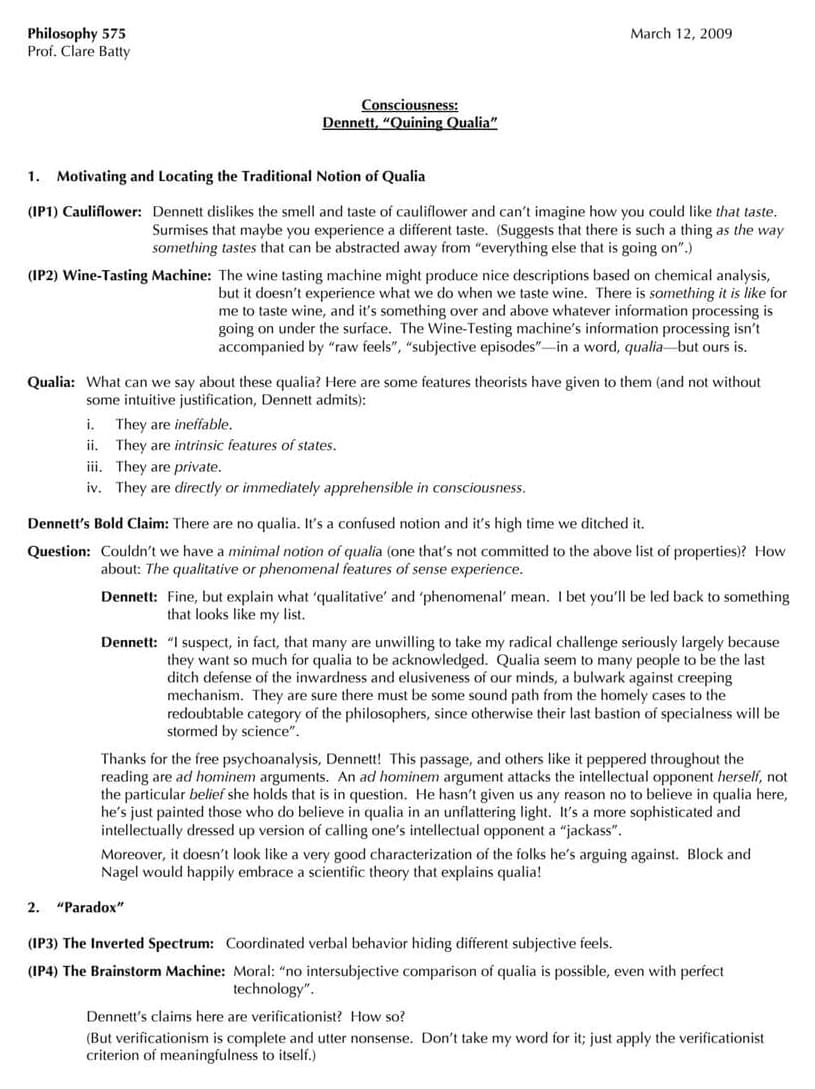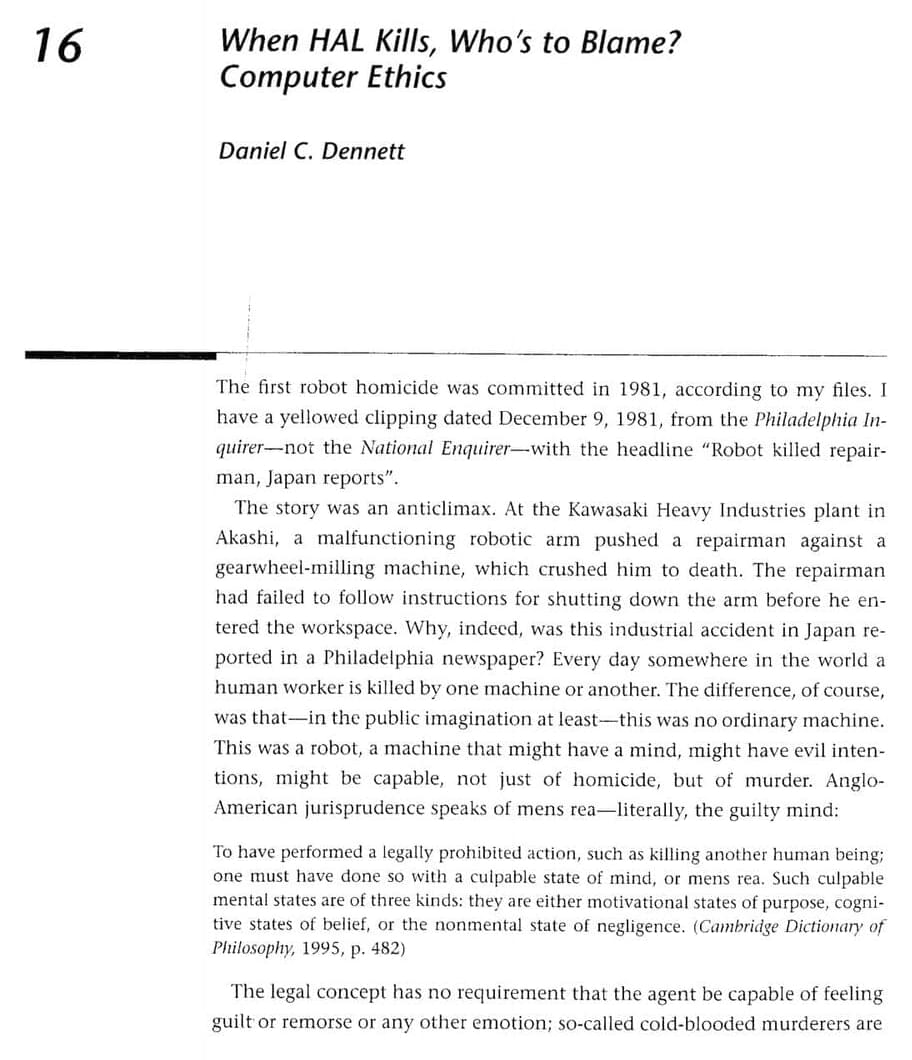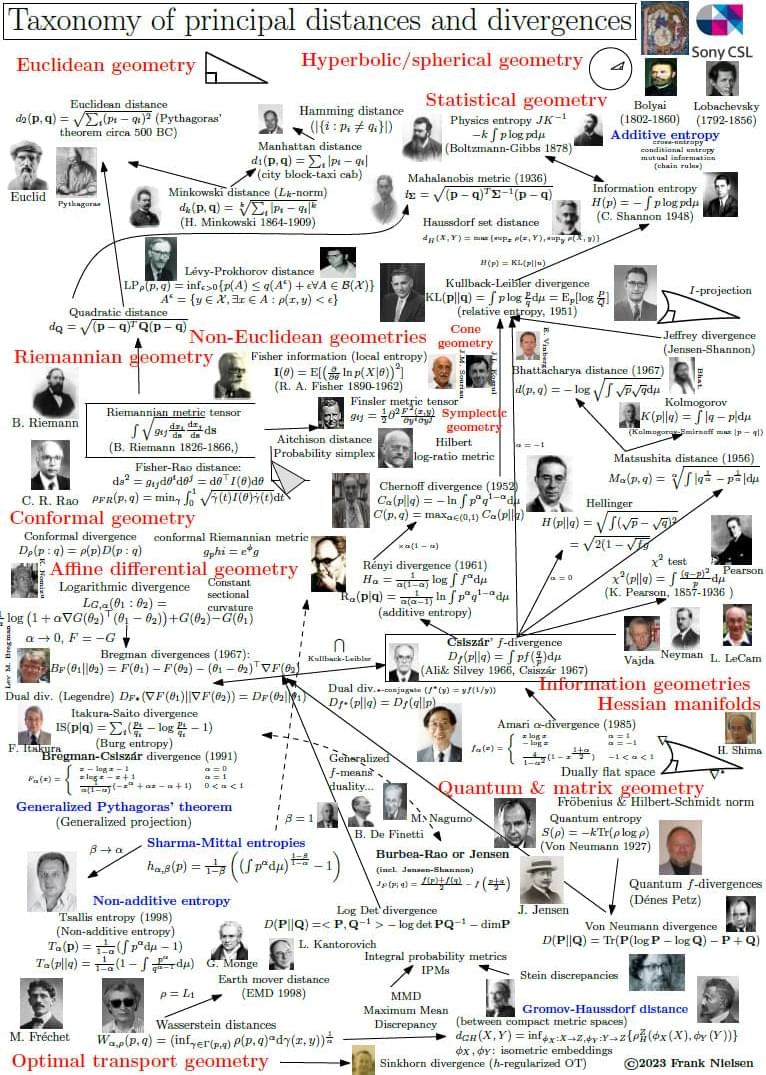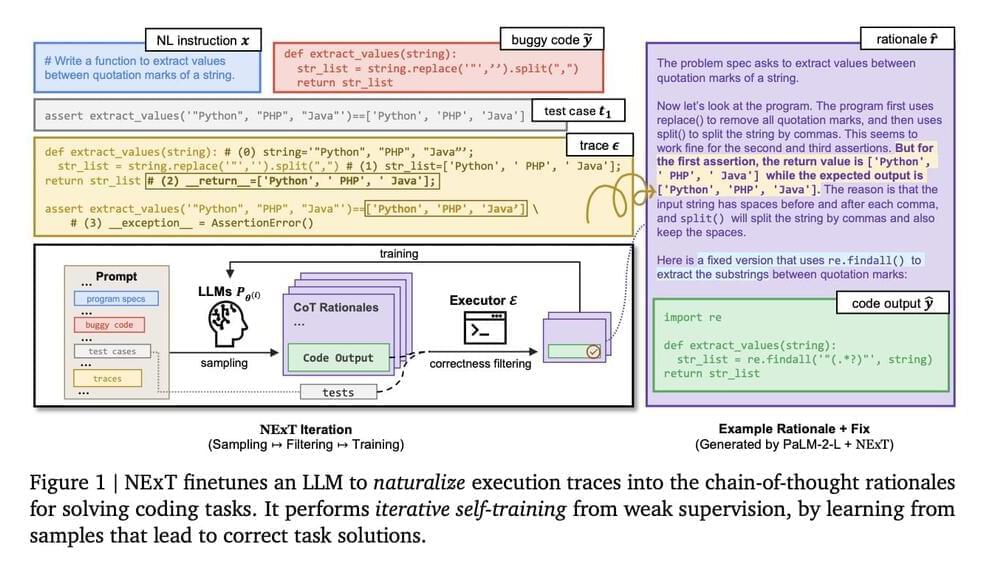Page 967
Apr 29, 2024
Fermi Paradox: The Cambrian Explosion Solution and Fossil Arks
Posted by Dan Breeden in categories: existential risks, space travel

An exploration of a potential solution to the Fermi Paradox within the Cambrian explosion period of geologic history, with an aside about fossil preservation in space.
My Patreon Page:
Continue reading “Fermi Paradox: The Cambrian Explosion Solution and Fossil Arks” »
Apr 28, 2024
Divergences (dissimilarities, discrepancies, discriminations, displacements, diversities, affinities)
Posted by Cecile G. Tamura in category: futurism
Taxonomy of principal distances and divergences v/ Frank Nielsen.
We define duo Bregman divergences, duo Fenchel-Young divergences, duo Jensen divergences. We show how those divergences occur naturally when calculating the Kullback-Leibler divergence and skew Bhattacharyya distances between densities belonging to nested exponential families. We report the KLD between truncated normal distributions as a duo Bregman divergence. Demo code:
Apr 28, 2024
Satya Nadella to Sundar Pichai: 22 top executives join AI advisory board in the US
Posted by Kelvin Dafiaghor in categories: robotics/AI, security
Microsoft, Alphabet, OpenAI, Nvidia CEOs join US advisory board to advise on protecting critical infrastructure from AI threats. Board aims to prevent AI-related disruptions to national security and public safety.
Apr 28, 2024
Tackling AI risks: Your reputation is at stake
Posted by Kelvin Dafiaghor in category: robotics/AI

Assessing AI risks in the context of their use, rather than as inherent in the technologies themselves, leads to smarter and safer implementations.
Apr 28, 2024
Quantum computing: The time to act is now
Posted by Dan Breeden in categories: computing, quantum physics
The number of quantum computing use cases is growing. Using a combination of quantum computing technologies might propel companies looking to stay ahead of the curve in their respective industries.
Apr 28, 2024
Daniel Dennett: ‘Why civilisation is more fragile than we realised’
Posted by Dan Breeden in category: robotics/AI
Before his recent death, the influential philosopher Daniel Dennett spoke to the BBC about why he saw new dangers from AI.
Apr 28, 2024
A small factor makes a big impact on genome editing
Posted by Dan Breeden in categories: biotech/medical, engineering, genetics
Through years of engineering gene-editing systems, researchers have developed a suite of tools that enable the modification of genomes in living cells, akin to “genome surgery.” These tools, including ones based on a natural system known as CRISPR/Cas9, offer enormous potential for addressing unmet clinical needs, underscored by the recent FDA approval of the first CRISPR/Cas9-based therapy.
A relatively new approach called “prime editing” enables gene-editing with exceptional accuracy and high versatility, but has a critical tradeoff: variable and often low efficiency of edit installation. In other words, while prime edits can be made with high precision and few unwanted byproducts, the approach also often fails to make those edits at reasonable frequencies.
In a paper that appeared in print in the journal Nature on April 18, 2024, Princeton scientists Jun Yan and Britt Adamson, along with several colleagues, describe a more efficient prime editor.
Apr 28, 2024
DeepMind Researchers Propose Naturalized Execution Tuning (NExT): A Self-Training Machine Learning Method that Drastically Improves the LLM’s Ability to Reason about Code Execution
Posted by Dan Breeden in category: robotics/AI
Understanding and reasoning about program execution is a critical skill for developers, often applied during tasks like debugging and code repair. Traditionally, developers simulate code execution mentally or through debugging tools to identify and fix errors. Despite their sophistication, large language models (LLMs) trained on code have struggled to grasp the deeper, semantic aspects of program execution beyond the superficial textual representation of code. This limitation often affects their performance in complex software engineering tasks, such as program repair, where understanding the execution flow of a program is essential.
Existing research in AI-driven software development includes several frameworks and models focused on enhancing code execution reasoning. Notable examples include CrossBeam, which leverages execution states in sequence-to-sequence models, and specialized neural architectures like the instruction pointer attention graph neural networks. Other approaches, such as the differentiable Forth interpreter and Scratchpad, integrate execution traces directly into model training to improve program synthesis and debugging capabilities. These methods pave the way for advanced reasoning about code, focusing on both the process and the dynamic states of execution within programming environments.
Researchers from Google DeepMind, Yale University, and the University of Illinois have proposed NExT, which introduces a novel approach by teaching LLMs to interpret and utilize execution traces, enabling more nuanced reasoning about program behavior during runtime. This method stands apart due to its incorporation of detailed runtime data directly into model training, fostering a deeper semantic understanding of code. By embedding execution traces as inline comments, NExT allows models to access crucial contexts that traditional training methods often overlook, making the generated rationales for code fixes more accurate and grounded in actual code execution.
















